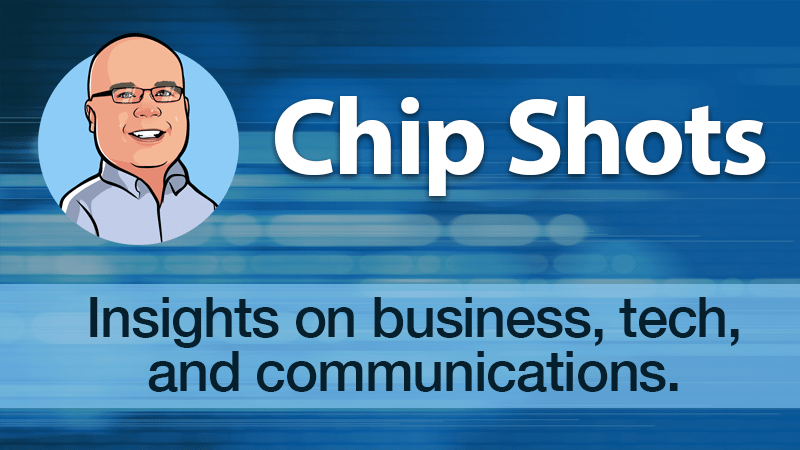Chip Shots: Opinions, Censors, Influencers, and More
I haven’t been the best at writing lately. I know that.
The past few months have been crazy with business travel (domestic and international), baseball umpiring, and countless other things large and small.
I don’t suppose that’s all that different from what you have experienced. We all have lots of activities to keep us busy and often more work than we can handle.
But enough of that before it starts to sound like whining. Or maybe it already did.
Let’s get on with this week’s Chip Shots…
TO OPINE OR NOT TO OPINE. There has been considerable discussion in recent months about whether and how much CEO’s should get involved in the political/social issue fray. Some argue that consumers want to see brands actively engaging on the issues of the day. Others say that these are no-win situations and brands should steer clear unless doing so is unavoidable.
My own view is that there’s no single correct answer. Every brand and every CEO needs to figure out the best path forward for their own organization, its values, and its customers.
It’s also worth remembering that consumers want brands to be active on issues — just as long as the brand makes sure to agree with their own views.
SOCIAL NETWORKS AS CENSORS. As a society, we have agreed (at least mostly) that it’s OK to censor some speech. For years, profanity was prohibited or bleeped out from network TV. That has changed and all but the must vulgar profanities have found a home on broadcast airwaves.
Now the debate isn’t over George Carlin’s list of dirty words, but rather fake news, hate speech, and troll farms. And the venue isn’t traditional broadcast but modern social networks.
As pressure mounts on Twitter, Facebook, YouTube, and others to shut down offensive accounts, there is significant sentiment that it is a good thing. But we also must recognize that it is a potential slippery slope, and one that puts social networks in a very difficult position.
There is no simple bright line test that separates vile, conspiracy-driven speech and simply unpopular speech.
As we work to starve haters and half-wits of their digital oxygen, we need to do so carefully and thoughtfully.
INFLUENCER TRACKING. In recent years, many companies have attempted to build databases of influencers, leveraging social data mixed with other sources. They have been used for online and offline influence. For many, it remains a Holy Grail objective to build the ultimate influencer database.
I used to be one of those seekers. And I still think it would be a powerful tool to accurately map and track relationships to figure out who to influence (and how) for the greatest impact on a target audience.
But I have soured on this goal over the last year. Apart from the real challenges in mapping — especially for the major influencers who don’t leave much in the way of digital footprints — the regulatory and legal framework is shifting such that this will be increasingly difficult.
While much has been said about GDPR and its impact on the European market, it has been overlooked that many US firms have adopted similar frameworks voluntarily because it is often too difficult to digitally segregate European audiences (and the newspapers that have attempted this have their own challenges). When you combine GDPR with the Russia backlash on social networks, the future of influencer databases is bleak indeed.
THE RED SOX. Wow. Enough said.
That will do it for this edition of Chip Shots. Have a great week!

